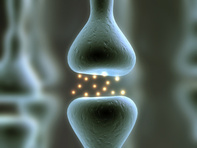 Like most of my patients, you likely know that you need adequate calcium in your diet to keep your bones strong and prevent against fracture, as you get older. What you may not know is that there is another nutrient that is just as important as calcium that decreases your risk of fracture even more. Let me tell you about this significant bone builder.
Like most of my patients, you likely know that you need adequate calcium in your diet to keep your bones strong and prevent against fracture, as you get older. What you may not know is that there is another nutrient that is just as important as calcium that decreases your risk of fracture even more. Let me tell you about this significant bone builder.
Strontium: Your Other Bone Builder
Everywhere you look in magazines, TV ads, the Internet, there’s a lot of information about how much you need calcium to keep your bones strong. That’s true – but you also need another crucial nutrient that hasn’t gotten as much media attention. It’s called strontium – a natural mineral that has pretty much the same bone building, strengthening action as calcium.
You might have heard, or read, some negative press on strontium in the past – that it can cause nausea, skin irritation, rickets, it’s association with radiation, etc. It’s true that some studies from Turkey back in 1996 showed some ill effects in children (bone malformations) from high strontium soil levels. Yet, the real culprit in those studies was the low level of calcium, phosphorus and Vitamin D in their diets. Adequate levels of these nutrients normalize strontium and prevent any problems associated with excess absorption into bones.
A form of strontium – strontium-89 – is a radioactive form of strontium used as chemotherapy for prostate, et al, cancer regimens. Another patented, unnatural drug form of strontium – ranelate – has also been associated with side effects. These forms, however, are not the forms you would naturally get from your diet or supplement.
Rather, the safe, bone health building form of strontium I’m referring to here is natural strontium salts, or strontrium citrate. A recent study by University of Chicago researchers has shown some very positive bone building benefits of strontium citrate including:
- Adheres to porous patches of bone like a “patch”
- Strengthens weak areas of bone from fracturing
In addition, the British Journal of Nutrition recently [Joseph Pizzorno, MD, 2010] published an article on how natural strontium – strontium citrate – helps the body maintain a normal alkaline pH level. Too low natural strontium can result in bone loss from too high blood acid, or acidosis. Acidosis ramps up production of osteoclasts – cells that break down bone in an effort to release more calcium from the bone. More calcium helps restore balanced pH but does so at the expense of losing bone.
Writing in Osteoporosis and Bone Health News, Laura Pizzorno, cites much more research from the SOTI (Spinal Osteoporosis Therapeutic Intervention) and TROPOS (Treatment of Peripheral Osteoporosis Study) done on about 7,000 postmenopausal women. Osteoporosis is a growing concern in postmenopausal women because of declining estrogen which protects bones. The resulting benefits of strontium to bones were as follows:
- Reduced the risk of femur, vertebral and hip fracture in postmenopausal women
- Reduced vertebral fracture about 55% in participants over the age of 80.
- Promotes healthy bone remodeling, boosts osteoclast production, and healthy bone synthesis. Drugs like Fosamax, Boniva, Prolia do not do this.
- No adverse effects when calcium and Vitamin D levels are also supplied.
How Can You Get Optimal Levels of Strontium?
There are three ways in which you can get optimal levels of strontium in your diet:
1. Diet: Root vegetables like carrots, turnips, potatoes, parsnips, radishes, ½ cup daily.
2. Supplement: Strontium citrate, 600 mg daily. This is half of the 1200 mg recommended dose of calcium to be sure that strontium doesn’t exceed calcium intake. Take the strontium citrate at a different time than you take a calcium supplement or eat a calcium-rich meal. Also, be sure you have adequate Vitamin D levels. A simple blood test at your doctor’s office will give you the result. Vitamin D 1,000 IU a day will bring your levels up to a healthy level. Check with your doctor to ensure that strontium citrate will not impact any medications you’re taking.
3. Exercise: In addition to ensuring that you have adequate strontium levels, getting enough weight-bearing exercise will help build strong bones as well. The National Osteoporosis Foundation recommends:
- Walking, running, hiking up hill.
- Dancing and/or high impact aerobics.
- Rebounding on a mini-trampoline, playing tennis, basketball.
Growing older doesn’t have to mean being sidelined from all your favorite activities for fear of fracturing a bone. In fact, participating in more bone-growth stimulating exercise, like those noted above, and ensuring adequate strontium, calcium and Vitamin D intake, you can stay active well into your 90’s and beyond!
Stay Well,
Mark Bromson, M.D.
Natural Health News
The Truth About Strontium Supplements, Side Effects, DEXA results, and more, http://www.algaecal.com/Blog/the-truth-about-strontium-supplements-side-effects-dexa-results-efficacy-and-more/11333
Strontium and Your Bones, http://www.berkeleywellnessalerts.com/alerts/dietary_supplements/Strontium-For-Bones202-1.html
photo credit: med.lu.se
